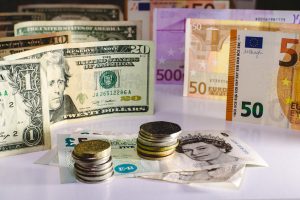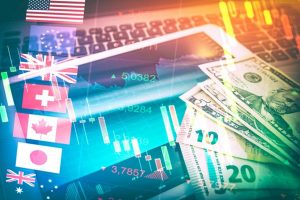Forex Trading in Economic Crises: Strategies for Survival
The global economy is susceptible to periods of instability known as economic crises. These crises often pose significant challenges for forex traders, but with appropriate strategies, it is still possible to navigate the market and find profitable opportunities. Let’s explore effective strategies together for forex trading during economic crises; strategies that empower traders to make informed decisions and mitigate risks
The State of Forex Trading in Economic Crises
Forex trading is one of the highly risky financial markets that presents numerous challenges for traders during economic crises. However, with the use of appropriate survival strategies, success is still achievable in this market, and profitable opportunities can be identified.
An economic crisis refers to a period of instability and uncertainty in the economy, characterized by a decline in economic activity, high unemployment rates, financial market instability, and a decrease in consumer spending. These crises may arise from various factors such as recessions, political instability, natural disasters, or epidemics. During economic crises, forex markets often face unpredictable price fluctuations and high volatility.
Economic crises significantly impact the forex market due to the interdependence of various economies and their effects on currency values. During such times, forex trading involves higher risks and requires strong risk management and appropriate strategies. However, with a careful analysis of the market and accurate information about economic events, traders can identify profitable opportunities and mitigate potential risks.
Examining the Impact of Economic Crises on Forex Markets
During economic crises, economic and social transformations can have a significant impact on financial markets. One of these markets is the forex market, which comes under influence during economic crises. In this section, we will delve into the examination of the impact of economic crises on the forex market and provide strategies for forex trading during economic crises and similar conditions.

Economic crises can lead to significant changes in the forex market. Some of the impacts of these crises include:
- Price Fluctuations: Economic crises may cause an increase in price fluctuations in the forex market. These fluctuations can result from economic instability and put traders under pressure.
- Market Trend Changes: Economic crises can bring about changes in market trends. Price patterns and market trends may undergo considerable alterations, providing traders with opportunities for profitable trading.
- Reduced Trading Volume: During economic crises, many investors and traders may refrain from entering the forex market for large transactions. This can lead to a decrease in trading volume and an increase in costs in the market.
- Impact on Currency Exchange Rates: Economic crises can have a significant impact on currency exchange rates. An increase in currency exchange rates or a decrease in the value of money may occur during a crisis, and these rate changes can directly affect forex transactions and the profitability of investors
Forex Trading Strategies During Economic Crises
During economic crises, forex trading still offers profitable possibilities, but success in these conditions requires appropriate strategies. Some suitable strategies during economic crises include:
- Fundamental Analysis: Fundamental analysis considers information and events related to the economy and policies. By studying news and economic indicators, traders can make informed decisions about forex trading during crises.
- Technical Analysis: Technical analysis involves examining price patterns, oscillators, and technical indicators. This type of analysis helps traders determine appropriate entry and exit points in trades.
- Risk Management: Risk management is a fundamental factor for success in forex trading during economic crises. Setting stop-loss orders, diversifying portfolios, and using appropriate risk levels can help traders minimize losses in these conditions.
- Adjusting Trading Strategies: During economic crises, adapting and changing trading strategies is crucial. Traders need to quickly respond to market changes and choose suitable strategies for their trades.
- Emotional Control: Emotional control is highly important during economic crises. Traders must manage their emotions, making decisions based on logic and thorough analysis.
In times of turmoil and uncertainty in financial markets, safe and stable assets can play a crucial role. These assets significantly contribute to preserving capital value and reducing risk. In this section, we will explore the importance of safe assets in turbulent markets and examine their role in maintaining the integrity and stability of markets.
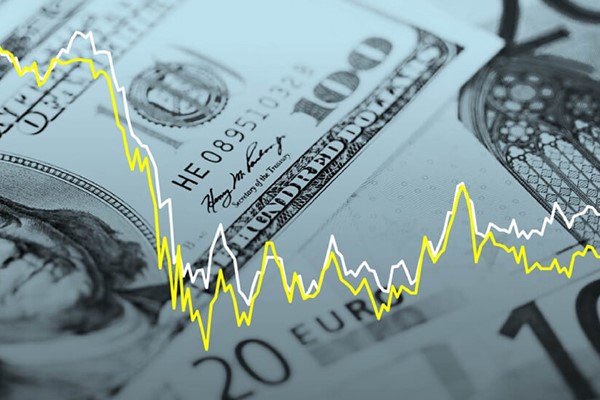
Types of Safe Assets for Forex Trading During Economic Crises
Safe assets typically include assets that experience increased demand and popularity during crisis and turbulent conditions. Some types of safe assets include:
- Gold: Gold is one of the secure and popular assets. During crises, there is an increased demand for investing in gold as it is considered a stable and risk-free source of value.
- Government Treasury Bonds: Government treasury bonds are considered safe assets. These assets are seen as stable and low-risk investment tools, and they experience high demand during crises due to their stability and acceptable returns.
- Central Bank Money Market Instruments: Central bank money market instruments, also known as cash facilities or cash loans, are recognized as safe assets in turbulent markets. These instruments, issued by the central bank on behalf of the government, are primarily used for interest rate control and liquidity regulation in the market.
- Strategic Company Stocks: In some cases, stocks of strategic companies are also considered safe assets. These stocks are perceived as stable assets and attract investors’ attention during crises.
The Role of Safe Assets in Turbulent Markets and Forex Trading During Economic Crises
Safe assets play a vital role in turbulent markets. During times of crisis and uncertainty, investors seek tools that can preserve their capital and minimize investment risks. Therefore, safe assets are recognized as havens in crisis and unstable conditions.
Safe assets, due to characteristics such as stability, renewability, low risk, and resistance to market changes, possess the ability to attract capital and preserve capital value. These assets serve as a measure of market strength and stability and act as tools for reducing investment risk.
For example, during economic crises and strong fluctuations in financial markets, investors may refrain from investing in high-risk stocks and turn to safe assets such as gold. This action helps preserve capital value and reduce investment risk.
Defensive Trading Strategies for Risk Reduction
In forex trading, risk reduction is a vital factor for success. During critical and uncertain times, defensive trading strategies can assist traders in mitigating their risks and safeguarding capital while striving for sustainable profits. Below, we will explore some defensive trading strategies for risk reduction in forex trading:
Using an appropriate combination of assets.
Using an appropriate combination of assets can help reduce risk. Traders should consider various assets and balance their combination. For example, using a combination of different base currencies or a mix of stocks and currencies can increase diversification and reduce risk.
Utilizing Limit Orders:
The use of limit orders can aid in risk reduction in trades. By placing limited buy or sell orders at specific price levels, traders can preserve their capital and avoid entering unsuccessful trades.
Employing Protective Strategies:
Using protective strategies can contribute to risk reduction in forex trading. For instance, employing stop-loss or trailing stop strategies can help traders preserve their capital in trades and automatically close positions in the event of strong market fluctuations.
Trade Volume Management:
Trade volume management plays a crucial role in risk reduction. Traders should adjust their trade volumes in proportion to their capital and risk tolerance. Increasing trade volumes during crisis times can amplify risks and lead to capital loss.

Understanding market conditions and economic events accurately can help reduce risk. Traders should consistently analyze market information and provide appropriate analyses of market conditions. This skill assists them in executing their trades with the utmost precision and confidence.
Risk Management Techniques for Forex Trading During Crises
During economic crises, forex trading involves higher risks. In such conditions, using risk management techniques can help traders mitigate risks and preserve their capital. In this section, we will explore some risk management techniques for forex trading during economic crises.
Using stop loss and take profit
Using Stop Loss and Take Profit can help reduce the risk in Forex trading. Stop Loss assists traders in automatically closing a trade in the event of unfavorable price fluctuations, preventing capital loss. Additionally, Take Profit aids traders to automatically close their trades when they reach the expected profit.
Using the Dollar Cost Averaging method in Forex trading during economic crises
By employing this method, traders can gradually reduce their average entry price over time through incremental purchases. This approach helps traders capitalize on rapid price fluctuations during crises and generate profits on average.
Using advanced accounts for Forex trading during economic crises
Some advanced accounts include Inverse Accounts and Micro Accounts. These accounts provide features that allow traders to control their capital and engage in lower-risk transactions.

Using technical analysis and scripts
The use of technical analysis and scripts can assist traders in risk management. Technical analysis, by examining price patterns and historical charts, helps traders make better decisions when engaging in trades. Additionally, employing scripts and trading robots can automate transactions with precise rules, reducing risk automatically.
Managing the importance of news
Traders are advised to consider the significance of news and plan accordingly. Utilizing an economic calendar and staying informed about relevant news can help traders capitalize on market events and fluctuations while managing risk.
Ultimately, during economic crises, risk management techniques can assist traders in reducing risks and preserving their capital. Regardless, traders should have a thorough understanding of market conditions and conduct a careful analysis before making any significant decisions.
Interpreting economic data and releasing news among a crisis
Economic data and news can have a substantial impact on the Forex market, and traders must analyze them accurately to make informed trading decisions.
Analyzing economic data
Analyzing economic data can assist traders in understanding the economic conditions of countries and interpreting their role in the Forex market. These data include unemployment rates, economic growth, inflation, industrial production, and other key indicators. By analyzing this data, traders can predict economic growth and recession trends, making more informed decisions in Forex transactions.
Examining news release
The publication of important news can have a significant impact on the Forex market. Traders should carefully follow news related to monetary policies, fiscal policies, political and economic events, trade agreements, and other critical developments. Accurate analysis and interpretation of news can enable traders to predict price changes, market directions, and, consequently, engage in more successful trades.

Account and Capital Management
Account and capital management holds significant importance in forex trading during economic crises. Traders must pay proper attention to capital management and deploy their capital in a balanced manner in transactions. Additionally, utilizing advanced accounts and reducing trade volume can contribute to risk reduction and capital preservation. With a correct understanding and accurate interpretation of economic data and news during economic crises, traders can better comprehend the forex market and make optimal decisions in their transactions. However, traders must carefully use reliable sources and base their analysis on accurate and up-to-date information.
OpoFinance is one of the top and most reputable forex brokers, providing unparalleled services and numerous opportunities for traders to enhance their efficiency in the global forex market. OpoFinance offers advanced features and tools to traders, with a powerful platform that boasts unique characteristics, user-friendliness, high security, and access to various markets, enabling you to achieve the best experience in forex trading.
Case Studies: Successful Forex Trading During Economic Crises
Forex trading is one of the markets that remains active even during economic crises. In these challenging conditions, many traders have been able to achieve significant profits by employing suitable strategies and accurate analysis. Below, we delve into some real case studies regarding successful forex trading during economic crises.
Growth of Trading During the 2008 Financial Crisis
In 2008, the global financial crisis significantly impacted many markets. Nevertheless, some traders were able to capitalize on this situation. For instance, a successful trader named John Dickinson, during this crisis, achieved substantial profits by utilizing accurate analysis and risk management strategies. Focusing on currency pairs directly affected by the crisis, he executed trades and managed to gain considerable profits.
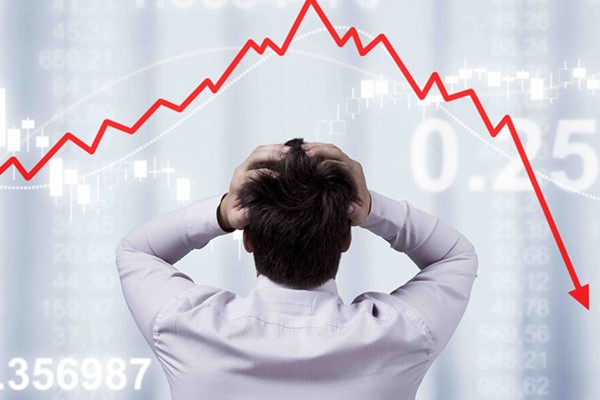
Trading During the Greek Crisis
In recent years, Greece faced a severe financial crisis. However, in these challenging conditions, some traders were able to achieve significant profits by employing appropriate strategies. For example, a professional trader named Sofia Andersen during the Greek crisis managed to attain considerable profits by using precise economic analysis and accurate interpretation of news.
2014 Oil Crisis
In 2014, with the decline in oil prices and the oil crisis, global markets were affected. However, some traders were able to capitalize on this situation by using specific strategies and accurate analysis.
For instance, a trader named Richard Williams, during the oil crisis, achieved significant profits by employing technical analysis and proper risk management. Analyzing price charts and market patterns, he made the best decisions and minimized risk using risk management techniques.
Based on the above case studies, it is evident that forex trading during economic crises can also lead to substantial profits. The use of appropriate strategies, accurate analysis, and proper risk management are key factors for success in these conditions. By focusing on these factors and obtaining proper education, traders can take advantage of opportunities during economic crises.

Points for Emotion Control and Psychological Resilience in Forex Trading
During forex trading, controlling emotions and maintaining psychological resilience are of utmost importance. Traders who can cope with the emotions and pressures arising from price fluctuations and unexpected events in the market, while having psychological resilience, can make better decisions in their trades and achieve greater success. Here are some key points for emotion control and psychological resilience in forex trading:
- Education and Awareness: A crucial aspect of controlling emotions and psychological resilience in forex trading during economic crises is sufficient education and awareness about forex trading. Familiarity with trading principles, market analysis, and risk management strategies enables traders to make better decisions in various conditions and reduce the impact of irrational emotions.
- Planning and Strategy: Precise planning and the use of trading strategies help traders make better decisions in stressful and complex situations. Setting realistic goals, employing risk management systems, and using strategies contribute to controlling emotions and reducing risk.
- Experience and Practice: Forex trading requires experience and practice. Continuous practice in trades and exposure to various conditions allow traders to gain more experience and confidence, enabling them to better handle emotions and pressures from market changes.
- Time Management: Proper time management and determining appropriate times for trades and market analysis help reduce stress and emotions. Traders should allocate sufficient time for market analysis and planning, avoiding hasty decision-making.
- Maintaining Mental Balance: Techniques such as meditation, mental focus, and regular exercise may aid in controlling emotions and enhancing psychological resilience
By adhering to these points, traders will be able to control their emotions, enhance psychological resilience, and execute more successful trades.
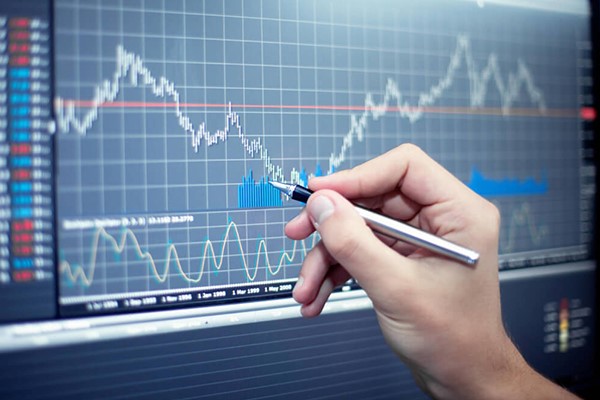
Exploring Hedging Strategies for Market Volatility Protection
In the forex market, price fluctuations and unforeseen changes can expose traders to risks. However, by employing hedging strategies, traders can protect themselves against these fluctuations and reduce the risk of their trades. Below, we discuss some of the hedging strategies used in forex trading:
- Reversed Trades: The hedging strategy using reversed trades allows traders to open another trade in the opposite direction if the price of an asset changes against their initial trade. This strategy enables traders to reduce their risk in the face of price fluctuations and irrational movements.
- Various Hedging Contracts: In the forex market, various hedging contracts such as futures contracts and options contracts are employed. These contracts provide traders with the means to preserve their profits in the face of market fluctuations and potential risks.
- Capital Management: Adjusting the amount of capital can also contribute to risk reduction and protection against market fluctuations. Traders should carefully manage their capital to be able to cope with significant fluctuations when they occur.

Future of Forex Trading in Economic Crises: Lessons and Preparedness
Forex trading is one of the dynamic and vibrant markets that comes under the influence of economic crises. In these turbulent conditions, traders face numerous challenges and must be able to navigate sudden changes and significant market fluctuations effectively. Let’s take a look at the future of forex trading during economic crises and examine the lessons learned and the preparedness required. Accurate Market Analysis
During economic crises, accurate market analysis and a proper understanding of market trends and patterns are of paramount importance. Traders must be capable of making more intelligent decisions through precise analysis and detailed examination of market conditions.
Effective Risk Management
In crisis situations, effective risk management becomes a key factor for success in forex trading. Traders should be able to assess risks properly and consider appropriate strategies to reduce risk and protect their capital.
Continuous Education and Learning
Forex trading is a dynamic and complex industry that is constantly evolving. For success in this industry, traders must continuously update their knowledge and rely on learning and education. Familiarity with new strategies, risk management techniques, and market analysis is crucial for traders.
Utilizing New Technology and Tools
Technology and new tools play a significant role in forex trading, especially during economic crises. The use of automated methods, advanced analytical software, and powerful risk management tools helps traders better cope with turbulent conditions and significant market fluctuations.
With the lessons learned and the necessary preparedness, the future of forex trading during economic crises can present more opportunities for traders to gain profits and success. However, it should be noted that forex trading still requires a thorough understanding of the market and precise analysis.
In this article, we have examined forex trading during economic crises. Economic crises always provide challenging opportunities for forex trading. In these turbulent conditions, traders must cope with precise market analysis, effective risk management, continuous education and learning, and the use of new technologies to achieve significant profits.
OpoFinance broker is a suitable option for forex trading during economic crises. OpoFinance, with its professional services and advanced tools, enables traders to make the best decisions in turbulent market conditions and achieve significant profits.
By using the powerful OpoFinance platform, you can confidently engage in forex trading during economic crises. OpoFinance broker, with its specialized and professional team, excellent support, and trading conditions, allows you to achieve the best performance in forex trading.





